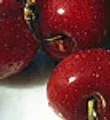ByJennifer Warner
WebMD Health News Reviewed byBrunilda Nazario, MD

Dec. 14, 2012 -- Drinking a glass of beet juice may have an immediate impact on lowering blood pressure, according to a new study.
The study shows that within hours of drinking it, beet juice lowered systolic blood pressure (the top number in a blood pressure reading) by an average of 4-5 points among a small group of healthy men.
Researchers say that drop may seem small, but on a public health level a reduction like that would equate to a 10% reduction in deaths due to heart disease.
“It’s promising that we can see an effect from a single dose,” says researcher Leah Coles, PhD, a research fellow at the Baker IDI Heart and Diabetes Institute in Melbourne, Australia. “That effect might be even greater over the long term if they are drinking it day upon day.”
Lowering BP: Exercise Tips for Getting Started
Beetroot Benefits
Previous studies have shown that beet juice, also known as beetroot juice, can lower blood pressure in a laboratory setting. But researchers say this is the first study to look at the effects of adding beet juice to a heathy person’s diet without making any other diet or lifestyle changes.
The results appear in Nutrition Journal.
In the study, 15 men and 15 women drank either 17.6 ounces of a beet juice beverage consisting of about three-fourths beet juice and one-fourth apple juice, or a placebo juice. They were then monitored for 24 hours. The same procedure was repeated two weeks later, with those who drank the placebo on the first round receiving beetroot juice on the second.
Among both men and women, the results showed a trend to lower systolic blood pressure six hours after drinking the beet juice.
But when researchers limited their analysis to men only, they found a significant reduction of about 4.7 points among those who drank the beetroot juice.
Previous studies have also suggested that beetroot’s blood-pressure-lowering effects may not be as strong in women.
In this case, Coles says it may be partially explained by the fact that the women in the study tended to be older, and many were on prescription medications, such as oral contraceptives.
Nitrates Behind Blood Pressure Effect
Experts say it’s the high concentration of nitrates in beets that are responsible for the benefits.
In a lengthy biological process, nitrates from dietary sources like beets and leafy green vegetables are converted to nitric oxide within the body. The nitric oxide then relaxes blood vessels and dilates them, which helps the blood flow more easily and lowers blood pressure.
“Whether from foods or from juice, you are seeing a consistent effect of nitrates in lowering blood pressure,” says registered dietitian Norman Hord, PhD, MPH, an associate professor at College of Public Health and Human Sciences at Oregon State University in Corvallis, Ore. “It’s probably the most potent blood-pressure-lowering component of the diet.”
1 | 2 Next Page > #url_reference {display: none};#url_reference { display: block; line-height: 150%; margin-bottom: 10px; }#logo_rdr img { visibility: visible; }.titleBar_rdr .titleBarMiddle_fmt { padding-top: 1.5em !important;} Top Picks Men: Is Hypertension Harming Your Sex Life? Is a Plant-Based Diet Good for Your Heart? Do You Know the Dangers of Prehypertension? Quiz: Test Your Salt Smarts Tips for Heart-Healthy Living With Diabetes Could Your Blood Pressure Medication Trigger a Gout Attack? Hypertension/High Blood Pressure Health Home News Reference Videos Community Questions and Answers Glossary Medications

Hypertension / High Blood Pressure Guide 1 Overview & Facts 2 Symptoms & Types 3 Diagnosis & Tests 4 Treatment & Care 5 Living & Managing 6 Resources & Tools See what others are asking about
Visit WebMD Answers
Related to Hypertension/High Blood Pressure Atherosclerosis Cholesterol Management Dental Care and Hypertension Fitness & Exercise Heart Disease Living Healthy Metabolic Syndrome Nutrition for Hypertension Sleep Problems Stroke Today in Hypertension

SLIDESHOW See Simple Ways to Lower Blood Pressure

TOOL Men: Hypertension Harming Your Sex Life?

Quiz What's Your Heart Disease IQ?

Quiz Test Your Salt Smarts

ARTICLE Tips for Heart-Healthy Living With Diabetes

SLIDESHOW BP Drugs & ED: What’s the Link?

VIDEO How Hypertension Affects Your Cardiac Risk

Article How to Wreck Your Heart

SLIDESHOW Heart Disease: Symptoms and Treatments

SLIDESHOW 15 Simple Ways to Lower Cholesterol

SLIDESHOW 24 Foods That Can Save Your Heart

VIDEO The Dangers of Low Blood Pressure Subscribe to WebMD Newsletters WebMD Daily Women's Health Men's Health Weight Loss Wisdom I have read and agree to WebMD's Privacy Policy. Submit Sign up for more topics! WebMD Special Sections Medication Safety When You Have High Blood Pressure Health Solutions From Our Sponsors Vaccine Questions? Low Testosterone? Diabetes Care for Kids Birth Control for Moms Blood Sugar Control Bent Fingers? Diagnosed With Low T? Fibromyalgia & Exercise Child’s Hearing Loss? Insulin Pump Therapy Vaccines for All Ages Knee Pain Relief Depression & Adults Bipolar Disorder Facts Relapsing MS Help In-depth coverage: Psoriasis Treatment on Target?|Healthy Mouth Help|RA Assessment|Living Healthy Guide|Family & Pregnancy Toolbox|Check Your Heartburn Symptoms Find us on:URAC: Accredited Health Web Site

HonCode: Health on the Net FoundationAdChoicesAbout WebMD Advertise With Us Terms of Use Privacy Policy Sponsor Policy Site Map Careers Contact UsMedscape Reference eMedicineHealth RxList Medscape MedicineNet BootsWebMD WebMD CorporateMedical Dictionary-->First Aid WebMD Magazine WebMD Health Record WebMD Mobile Newsletters Dictionary Physician Directory
©2005-2012 WebMD, LLC. All rights reserved.
WebMD does not provide medical advice, diagnosis or treatment. See additional information.
View the
Original article







 SLIDESHOW See Simple Ways to Lower Blood Pressure
SLIDESHOW See Simple Ways to Lower Blood Pressure  TOOL Men: Hypertension Harming Your Sex Life?
TOOL Men: Hypertension Harming Your Sex Life?  Quiz What's Your Heart Disease IQ?
Quiz What's Your Heart Disease IQ?  Quiz Test Your Salt Smarts
Quiz Test Your Salt Smarts  ARTICLE Tips for Heart-Healthy Living With Diabetes
ARTICLE Tips for Heart-Healthy Living With Diabetes  SLIDESHOW BP Drugs & ED: What’s the Link?
SLIDESHOW BP Drugs & ED: What’s the Link?  VIDEO How Hypertension Affects Your Cardiac Risk
VIDEO How Hypertension Affects Your Cardiac Risk  Article How to Wreck Your Heart
Article How to Wreck Your Heart  SLIDESHOW Heart Disease: Symptoms and Treatments
SLIDESHOW Heart Disease: Symptoms and Treatments  SLIDESHOW 15 Simple Ways to Lower Cholesterol
SLIDESHOW 15 Simple Ways to Lower Cholesterol  SLIDESHOW 24 Foods That Can Save Your Heart
SLIDESHOW 24 Foods That Can Save Your Heart  VIDEO The Dangers of Low Blood Pressure Subscribe to WebMD Newsletters WebMD Daily Women's Health Men's Health Weight Loss Wisdom I have read and agree to WebMD's Privacy Policy. Submit Sign up for more topics! WebMD Special Sections Medication Safety When You Have High Blood Pressure Health Solutions From Our Sponsors Vaccine Questions? Low Testosterone? Diabetes Care for Kids Birth Control for Moms Blood Sugar Control Bent Fingers? Diagnosed With Low T? Fibromyalgia & Exercise Child’s Hearing Loss? Insulin Pump Therapy Vaccines for All Ages Knee Pain Relief Depression & Adults Bipolar Disorder Facts Relapsing MS Help In-depth coverage: Psoriasis Treatment on Target?|Healthy Mouth Help|RA Assessment|Living Healthy Guide|Family & Pregnancy Toolbox|Check Your Heartburn Symptoms Find us on:URAC: Accredited Health Web Site
VIDEO The Dangers of Low Blood Pressure Subscribe to WebMD Newsletters WebMD Daily Women's Health Men's Health Weight Loss Wisdom I have read and agree to WebMD's Privacy Policy. Submit Sign up for more topics! WebMD Special Sections Medication Safety When You Have High Blood Pressure Health Solutions From Our Sponsors Vaccine Questions? Low Testosterone? Diabetes Care for Kids Birth Control for Moms Blood Sugar Control Bent Fingers? Diagnosed With Low T? Fibromyalgia & Exercise Child’s Hearing Loss? Insulin Pump Therapy Vaccines for All Ages Knee Pain Relief Depression & Adults Bipolar Disorder Facts Relapsing MS Help In-depth coverage: Psoriasis Treatment on Target?|Healthy Mouth Help|RA Assessment|Living Healthy Guide|Family & Pregnancy Toolbox|Check Your Heartburn Symptoms Find us on:URAC: Accredited Health Web Site